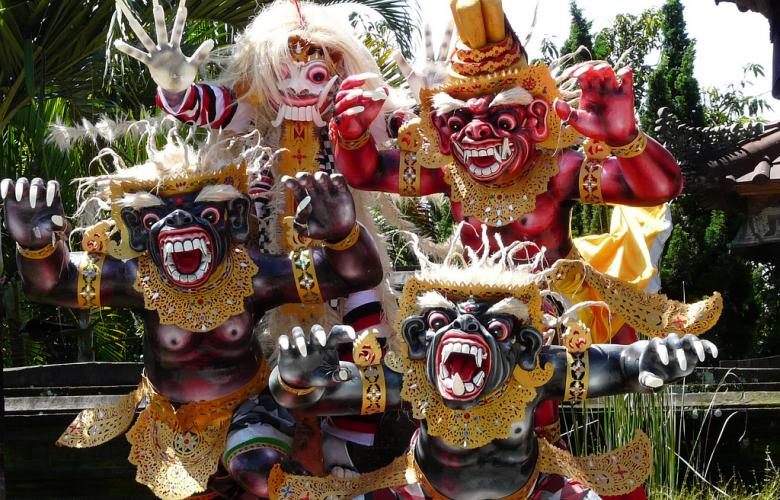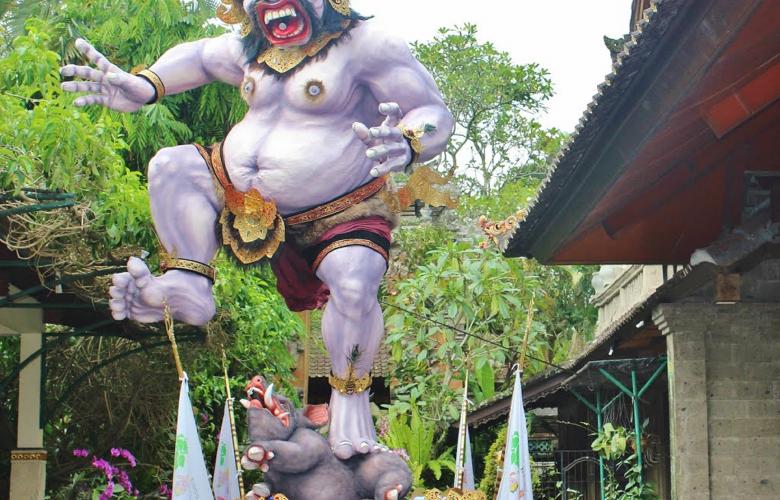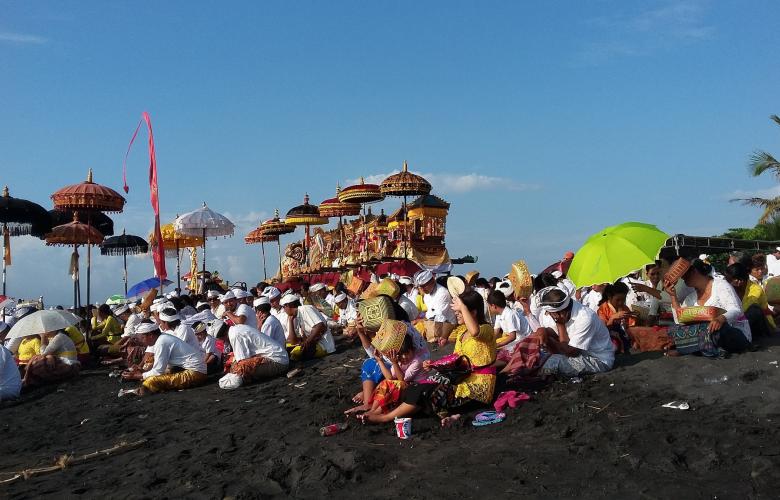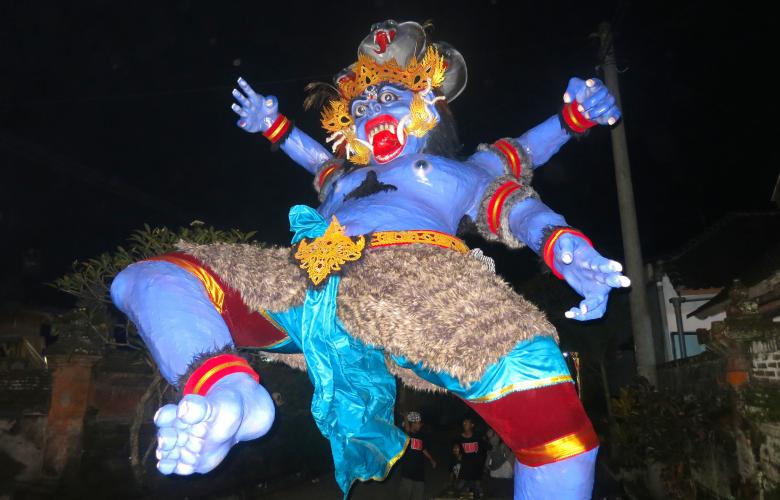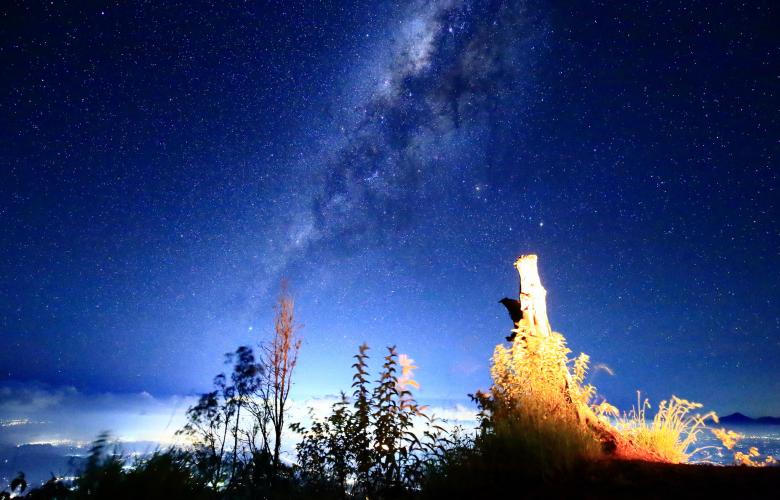Nyepi is a time to return balance to Bali (and the world) and falls the day after the dark moon of the Spring Equinox. This year it begins at 6 am on March 7 and finishes at 6 am on March 8 and it welcomes in the Saka New Year 1941.
Nyepi celebrations last for 6-days; the first two days are for purification ceremonies called Melasti, when beautifully colourful processions literally stop traffic across the island on the way to beaches and rivers to purify family and temple heirlooms.
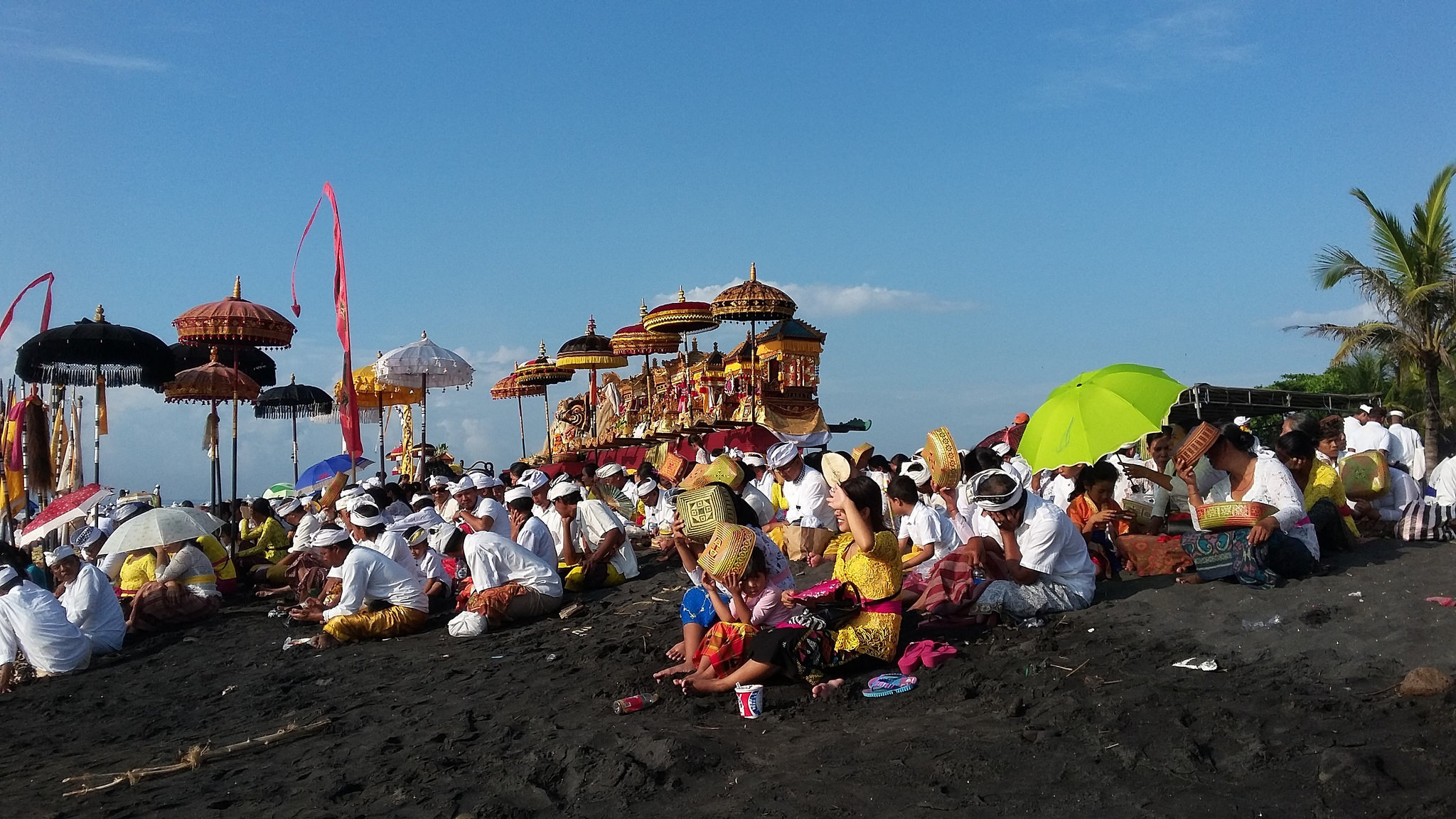
Two days of purification ceremonies called Melasti to purify family and temple heirlooms.
Ogoh-Ogoh parades
The evening of the second day is when the ogoh-ogoh parades take to the streets. It is noisy and chaotic as huge demonic effigies, some more than 10-meters high, are paraded along streets and carried on bamboo platforms to important junctions on the island's main roads.
The ogoh-ogoh are said to distract or capture evil spirits, effectively 'cleansing' the island for another year and then they are ceremoniously burned or destroyed. Tradition and legend dictate the following day must be silent to make sure the demons can't find their way back.
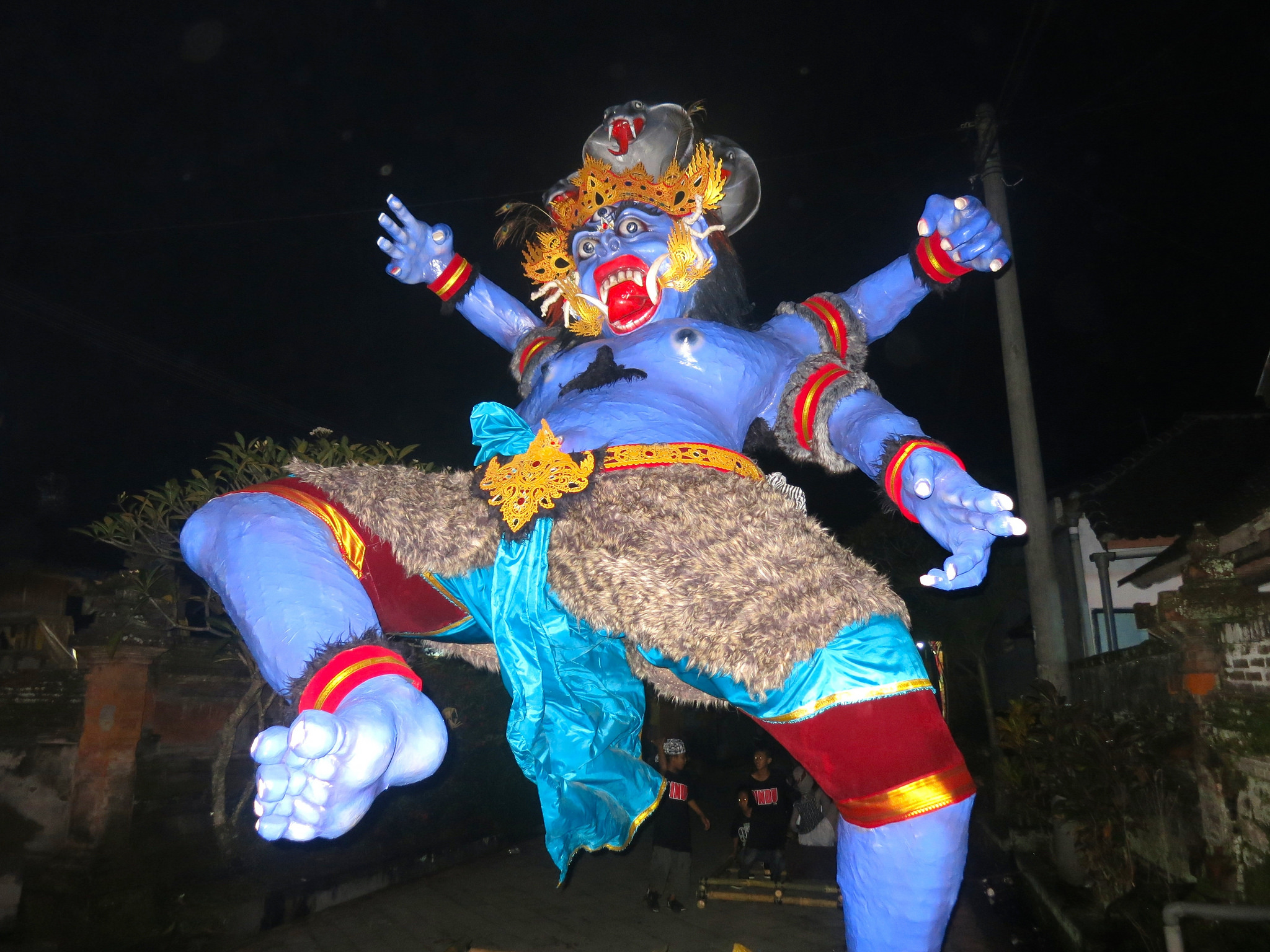
Huge demonic effigies, some more than 10-meters high, are paraded along streets.
No Styrofoam or plastic
According to Gapura Bali and local news wires, Bali's governor has decreed that all ogoh-ogoh in Denpasar's parades cannot use Styrofoam as a way to underscore the administration's commitment to banning single use plastic bags, Styrofoam and straws, which came into effect on January 1. This means a return to traditional methods to build ogoh-ogoh using bamboo and papier-mâché.
The third day of Nyepi is silent. And for all intents and purposes, one of the world's most popular holiday destinations is closed for business.
A lesson for the world?
In an incredible gesture, which some would argue is a lesson for the rest of the world, Bali voluntarily isolates itself and focuses on the importance of inner-reflection and balance and the results are startling.
There are four Nyepi Prohibitions: no fire, no travel, no activity and no entertainment. Electric lights are switched off, satellite, cable and terrestrial TV channels are temporarily unavailable, all businesses, shops and offices are officially closed and Ngurah Rai International Airport is shut down so no flights arrive or depart.
Airport is closed
According to Arie Ahsanurrohim, Communications and Legal Section Head of Ngurah Rai Airport, a total of 468 international and domestic flights will be stopped because of this year's Nyepi.
Interent access
Following last year's initiative internet access will also be affected. Merdeka report that Indonesian Minister of Religion, Lukman Hakim Syarifuddin, is supporting the call from Bali's highest religious body, Parisada Hindu Dharma Indonesia or PHDI, to cut access. Government facilities, hospitals, emergency services, security and other vital public facilities, will however, not be affected.
People are not allowed to leave their homes, hotels, villas or compounds on the day of silence. Traditional Balinese neighborhood security (Pecalang), keep an eye on the streets to make sure curious tourists (and others) don't wander around.
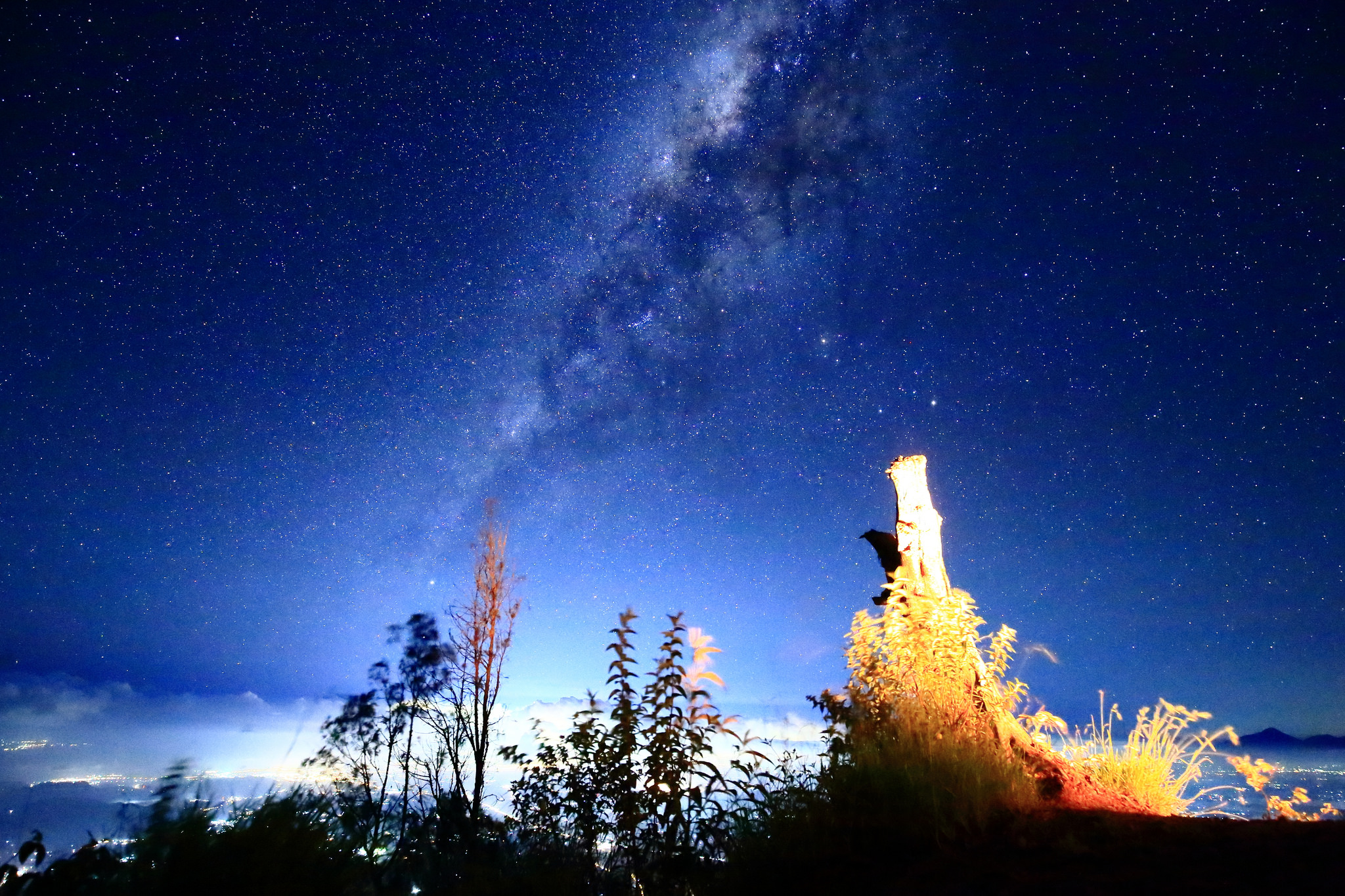
For those who stay there is the reward of sparkling milky-way skies and a serene sense of peace.
No noise or light pollution
This means roads are empty, and quiet and the sounds of internal combustion are gone. For some this is the best time of the year, for others it is a time to stay in a hotel or resort, as they are somewhat exempt from the strict no-noise, no-light policy or time to hop over to neighbouring Lombok or the Gili Islands. But for those who stay there is the reward of sparkling milky-way skies and a serene sense of peace.
The fourth day things go back to normal. Almost. The airport re-opens and people are free to leave their homes and hotels.
The fifth day is called Ngembak Geni and it's a time for Balinese Hindus to ask for forgiveness for past indiscretions and to welcome a new year with clean hearts.
The sixth and final day is dedicated to Dharma Shanti rituals, which close the Nyepi celebrations.
Sources: Bali Spirit, The Jakarta Post, Merdeka, Kompas, Tribun Bali, Detik, Pikiran Rakyat
Similar to this:
No Internet for Nyepi?
Garuda Indoneisa Group Reduce Prices by 20 percent
Bali's tourism numbers exceed targets in 2018

